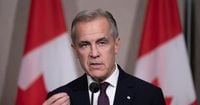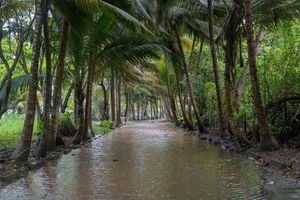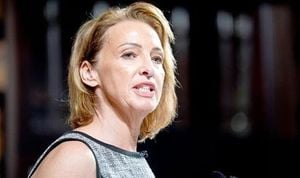On Monday, October 27, 2025, Canadian Prime Minister Mark Carney stood before a cluster of reporters in Kuala Lumpur, Malaysia, and delivered a message with far-reaching implications. Canada, he announced, had begun formal talks on a new free trade deal with the Philippines, marking a fresh chapter in Ottawa’s push to expand its economic footprint in Southeast Asia. But that was just the opening act in a week packed with high-stakes diplomacy, as Carney’s itinerary also included a pivotal meeting with Chinese President Xi Jinping at the upcoming Asia Pacific Economic Cooperation (APEC) forum in South Korea—a move that signals a potential thaw in relations between Ottawa and Beijing after years of tension.
According to Reuters, Carney made it clear that Canada’s ambitions in the region extend beyond bilateral agreements. He revealed that Canada and the Association of Southeast Asian Nations (ASEAN) have agreed to accelerate negotiations on a broader Canada-ASEAN free trade agreement, with the goal of finalizing a comprehensive deal by 2026. "We are committed to deepening our economic ties in the region, and these talks with the Philippines are just the beginning," Carney said, as reported by Reuters.
Carney’s presence at the ASEAN summit comes at a time when the global trade landscape is shifting rapidly. The United States, once a steadfast anchor of international trade norms, has become increasingly unpredictable, especially under the leadership of former President Donald Trump. The Canadian prime minister’s trade mission, as noted by CTV News, is unfolding against a backdrop of frosty relations with Washington, where ongoing disputes over tariffs and market access have left Ottawa searching for new economic partners and alternative markets.
But the real drama of Carney’s Asia trip centers on China. For the first time since 2017, the leaders of Canada and China are set to meet formally, raising hopes for a reset in a relationship that has been marred by diplomatic crises and tit-for-tat trade sanctions. The planned meeting with President Xi at APEC, Carney explained, would cover "a broad range of issues, both in terms of the commercial relationship as well as the evolution of the global system," according to The Canadian Press.
It’s hard to overstate just how fraught Canada-China relations have been in recent years. The downward spiral began in December 2018, when Canadian officials, acting at the request of U.S. authorities, arrested Meng Wanzhou, the chief financial officer of Chinese tech giant Huawei, at Vancouver International Airport. China responded by detaining two Canadians, Michael Kovrig and Michael Spavor, in what Ottawa described as arbitrary retaliation. The resulting standoff dragged on for nearly three years, casting a pall over diplomatic and commercial ties.
Although Meng was eventually allowed to return to China in September 2021 after reaching a deal with U.S. prosecutors, and Kovrig and Spavor were released and returned to Canada just hours later, the scars of that episode lingered. As The Canadian Press recounted, subsequent encounters between Canadian and Chinese leaders were tense and unproductive. During a brief conversation at the 2022 G20 summit, Xi Jinping publicly admonished then-Prime Minister Justin Trudeau for allegedly leaking details of their discussions, warning there could be consequences for what he saw as a lack of respect.
Since taking office, Carney has made repairing the relationship with China a priority. He met with Chinese Premier Li Qiang at the United Nations in September 2025, and Foreign Affairs Minister Anita Anand recently visited Beijing to meet her counterpart, Wang Yi. "We're in the process of a resetting of expectations of where the relationship can go," Carney told reporters in Kuala Lumpur, as cited by The Canadian Press. He added, "Relationships rebuild over time when they have changed, when they have changed for the worse. So we have a lot of areas on which we can build."
Business leaders and provincial premiers back home have been urging Carney to seize the opportunity to ease the current trade dispute with China. In October 2024, Canada followed the Biden administration’s lead and slapped a 100 percent tariff on Chinese electric vehicles and batteries, along with levies on solar panels, critical minerals, and related goods. China responded in kind, targeting Canadian canola, seafood, and pork products with retaliatory tariffs. Saskatchewan Premier Scott Moe and Manitoba Premier Wab Kinew have both pressed Carney to consider lifting the tariffs on Chinese EVs as a gesture of goodwill.
When asked directly if he intended to drop the tariffs, Carney demurred. "I look forward to the discussions with President Xi, and they're about a much broader set of issues than trade, and I'll be in a better position to start answering questions like that as the relationship evolves and deepens," he said. "This is the difference between relationship and transaction. We're starting (a) relationship, building up the relationship." His comments, reported by The Canadian Press, suggest that any resolution on tariffs will hinge on progress made during the upcoming talks.
Carney’s Asia tour is not limited to China and the Philippines. He also revealed that Canada is exploring opportunities with Malaysia’s state energy giant, Petronas, as part of Ottawa’s efforts to position itself as a reliable energy supplier in the region. With global energy markets in flux and Southeast Asia’s demand for secure, sustainable resources on the rise, this initiative could have significant long-term implications for Canada’s energy sector.
After wrapping up his meetings in Kuala Lumpur, Carney is set to travel to Singapore before heading to South Korea for the APEC summit. The timing of this diplomatic offensive is no accident. As the United States continues to upend traditional trade norms and global alliances, Canada is eager to demonstrate that it remains a dependable partner—one capable of forging new relationships and adapting to a rapidly changing world.
Of course, the road ahead is anything but straightforward. The wounds from the Canada-China diplomatic spat are still fresh, and the trade disputes with both China and the United States have left Canadian exporters wary of becoming collateral damage in larger geopolitical battles. Yet, as Carney’s whirlwind Asia tour makes clear, Ottawa is determined to chart its own course, one that balances economic pragmatism with the realities of an increasingly complex international environment.
As Carney himself put it, the difference between a relationship and a transaction is time and trust. Whether this week’s meetings will lay the groundwork for a lasting rapprochement with China—or simply mark another twist in a long, unpredictable saga—remains to be seen. For now, all eyes are on the Canadian delegation as it seeks to turn a moment of uncertainty into an era of opportunity.




